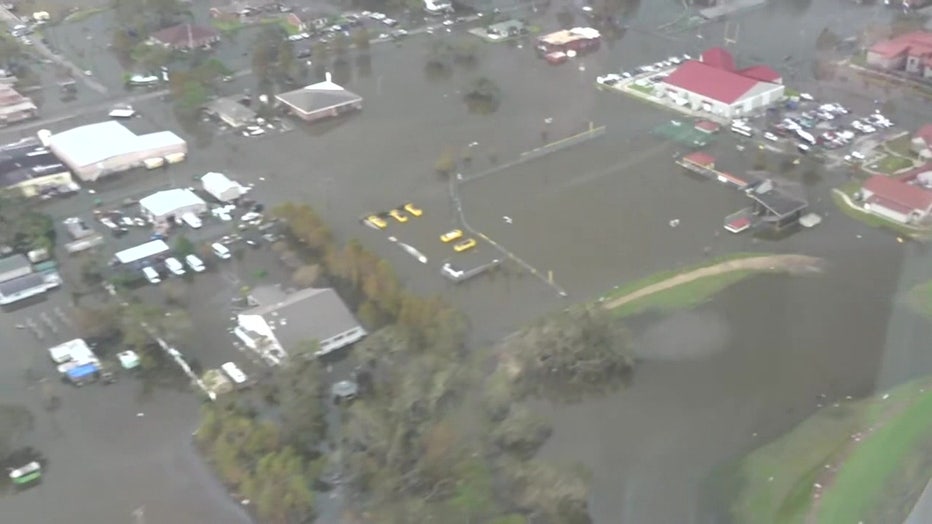Dangers posed to those living along Gulf Coast increasing due to sea level rise, studies show
TAMPA, Fla. - The sea is rising substantially along the Gulf Coast, as much as five times as fast as oceans in the rest of the world.
A new batch of studies shows that the danger posed to people living along the Gulf of Mexico is increasing substantially.
"Sea level is not only rising in [the Gulf] but is rising faster every year," said Soenke Dangendorf of the University of Tulane.
Measurements taken along the Gulf Coast in Pensacola show that for most of the 20th century, sea level increased, and sometimes decreased, by one to two millimeters a year.
READ: US sea levels will rise rapidly in the next 30 years, report warns
But in the last 10 years, there have only been increases, which have been by as many as 10 millimeters a year.

The effects of higher water during hurricanes
Higher water, to begin with, creates even higher water when hurricanes hit.
"Insurance costs become larger," said Dangendorf. "It becomes more and more difficult living in these areas and more and more expensive."
Another study by researchers at the University of Arizona pins the monstrosities of Hurricanes Ian and Michael on the rising sea levels, which killed 234 people and caused $138 billion in damage.
USF climate scientist Gary Mitchum says warming waters are making storms more intense, often in a less-predictable fashion.
MORE: Florida Republicans detail plan to combat rising sea levels
The sea level is rising," said Mitchum. "And if we get into decades from now where the rise could be measured in feet rather than inches, then this could certainly add to the storm surge risk."
Dangendorf says once-a-century storms may become once-a-year storms.
The studies blame forty percent of climate change on man-made causes, while the rest could be from natural changes in ocean temperature.
"The Gulf of Mexico is a very vulnerable location," said Dangendorf. "We have a lot of low-lying areas,"
Ten millimeters a year for at least 13 years indicates a change of five inches.

